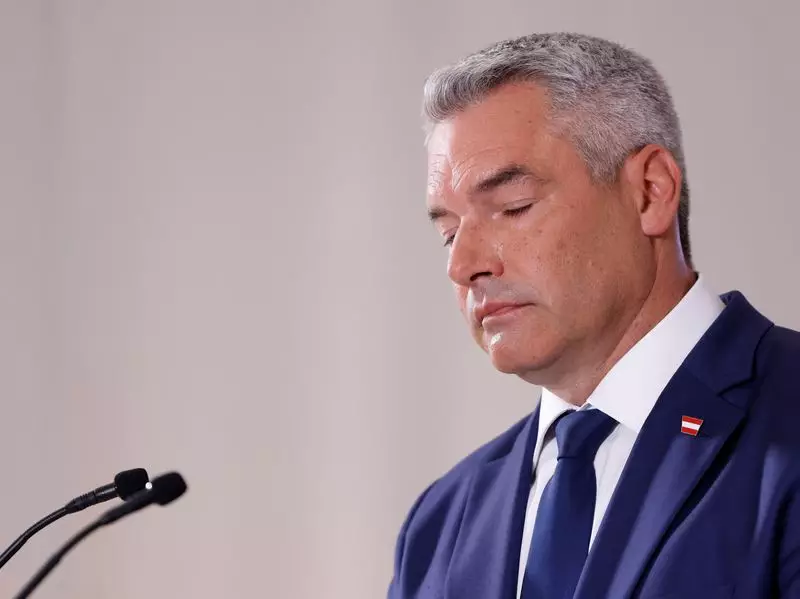Austria is currently navigating through a significant political upheaval following the resignation of Chancellor Karl Nehammer. His departure was marked by the dissolution of coalition talks intended to establish a stable government shielded from the rising influence of the far-right Freedom Party (FPO). This political turbulence has raised many questions about the future of Austria’s ruling conservatives, with calls for decisive leadership becoming increasingly urgent. The crisis underscores deep divisions within the government and highlights the FPO’s surging popularity after its electoral success in September.
Succession Plans for the People’s Party
In the wake of Nehammer’s announcement, Austria’s ruling People’s Party (OVP) convened a crisis meeting to select a new interim leader. Following lengthy discussions, OVP Secretary-General Christian Stocker has been reported to step into a temporary leadership role. However, the party’s public silence suggests a lack of cohesive strategy moving forward. The choice of Stocker indicates an attempt to stabilize the party, but many observers question whether he possesses the necessary vision to navigate the party through this turbulent period.
With the recent talks between various political factions collapsing, President Alexander Van der Bellen finds himself facing a limited array of options. The prospect of a snap election looms, but it may only exacerbate the current predicament. The ongoing ascendance of the FPO, characterized by its eurosceptic and nationalist stances, presents a formidable challenge to the traditional parties of Austria. Consequently, a seemingly inevitable shift could occur: a government formed with the FPO at the helm, leading to a major recalibration of Austria’s political identity.
The FPO has gained significant traction, winning approximately 29% of the vote in September’s election. A series of opinion polls indicates its share of support is on the rise, positioning it ahead of the OVP and the Social Democrats by a notable margin. This scenario poses a dilemma for conservative leaders who are now faced with the reality that aligning with the FPO might not only be strategically advantageous but also politically necessary for survival.
The overlap in policy perspectives on key issues like immigration illustrates why the OVP may be compelled to revisit its historical reluctance to partner with the FPO. However, the dynamics at play are complex; a coalition under these circumstances would see the OVP relegated to a junior role—a far cry from its previous stature during its last coalition with the FPO between 2017 and 2019. The fear of losing influence within the government could deter potential alliances and push the OVP towards seeking alternative partners in the political arena.
As the situation evolves, reactions to the potential leadership change within the OVP reflect a mix of apprehension and expectation. There have been murmurs of more established personalities, like former party leader Sebastian Kurz, emerging as contenders despite previous controversies surrounding his political career. However, media reports suggest this may not materialize, leaving the party to lean on less recognized figures such as Wolfgang Hattmannsdorfer. The uncertainty regarding the OVP’s future trajectory has left many within the party and the Austrian populace wondering what kind of leadership will emerge during this challenging juncture.
Moreover, the FPO is capitalizing on the current disarray, calling for what it deems “Chancellor Kickl” in an assertive move to harness public sentiment. This situation emphasizes the pressing need for the OVP to formulate a coherent strategy to counter the FPO’s rising star, thereby preventing a further shift to the right in Austrian politics.
Austria’s political landscape is in flux, and the events following Nehammer’s resignation highlight the delicate balance between conservatism and rising populism. The upcoming decisions taken by the OVP will have far-reaching implications not only for the party itself but also for the future of Austrian governance. With public sentiment shifting and the FPO’s popularity escalating, it has become critical for conservative leaders to reassess their positions, identify viable paths forward, and ultimately strive to maintain a unified front amid growing division. The future of Austria’s political fabric depends on their ability to navigate this transition effectively.

